Are you frustrated by unethical sales practices that chip away at your trust? You're not alone, as many consumers are facing similar dilemmas and seeking justice. Writing a formal complaint letter can be an effective way to address these issues, hold companies accountable, and protect your rights. If you're ready to stand up against these practices, let's dive into how you can craft a compelling complaint letter that demands attention!

Clear identification of the recipient and sender
A formal complaint regarding unethical sales practices requires precise documentation of all parties involved. The recipient, typically a designated customer service manager or ethics compliance officer, should be stated with full name, title, and company name, located at the company's headquarters (for instance, 123 Corporate Blvd, Suite 100, City, State, Zip Code). The sender, who is the complainant, must include their full name, address (such as 456 Residential Ave, City, State, Zip Code), and contact information (phone number and email address). This ensures proper identification of both the aggrieved party and the recipient of the complaint, facilitating transparency in communication. Clear articulation of the complaint's essence and specific details is crucial for effective resolution, including relevant transaction dates, incident descriptions, and any supporting evidence.
Detailed description of the unethical sales practice
The unethical sales practice of misleading advertising often occurs in retail chains, where sales representatives employ deceptive tactics to increase commission-based earnings. For instance, promotions may advertise products at exaggerated discounts, such as "50% off!" when the original prices have been artificially inflated weeks prior, making the reduction misleading. Furthermore, representatives may pressure customers into making impulsive purchasing decisions by using high-pressure tactics, such as limited-time offers that create a false sense of urgency. In some cases, they provide misinformation regarding product quality or functionality, highlighting features that do not exist or downplaying potential drawbacks. This manipulative approach can erode consumer trust, impacting loyal customer relationships and violating ethical sales standards established by organizations such as the Better Business Bureau.
Reference to specific incidents or communications
Unethical sales practices undermine customer trust and can severely damage the reputation of companies. Incidents such as misleading advertisements, aggressive upselling tactics, or false claims about product efficacy warrant formal complaints. For instance, in April 2023, a customer was promised an unrealistic discount during a phone conversation with Sales Representative John Doe of XYZ Corporation, which was later contradicted by the written contract stating full price. Such discrepancies not only confuse consumers but also point to potential violations of consumer protection laws. Documentation of these experiences enhances the credibility of complaints, ensuring that relevant authorities address the issue effectively.
Request for investigation or corrective action
Numerous consumers have reported unethical sales practices by local dealerships, particularly in the automotive industry. Misrepresentations regarding vehicle conditions, such as hidden damages or inflated pricing, have occurred across multiple transactions. For instance, in a case from July 2023 involving a Honda dealership in San Diego, California, a customer discovered undisclosed repairs costing over $2,000 after purchase. Consumer protection agencies, like the Federal Trade Commission, encourage individuals to report these practices to promote accountability and seek corrective actions. Immediate investigations should be initiated to examine the prevalence of these unethical tactics and enforce necessary regulations to safeguard consumers against such misleading behaviors.
Professional tone and language throughout
Unethical sales practices can significantly undermine consumer trust in companies and industries, leading to detrimental impacts on brand reputation. Examples of these practices include deceptive advertising and pressure selling techniques, often occurring during high-stakes transactions in sectors like automotive sales or real estate. Specific incidents, such as misrepresentation of a product's features or hidden fees, can lead to consumer dissatisfaction and legal repercussions for businesses. Addressing these ethical concerns is crucial for maintaining fair market competition and ensuring consumers' rights are protected, as seen in various consumer protection laws enforced by entities such as the Federal Trade Commission (FTC).
Letter Template For Formal Complaint On Unethical Sales Practice Samples
Letter template of formal grievance against unethical marketing practices
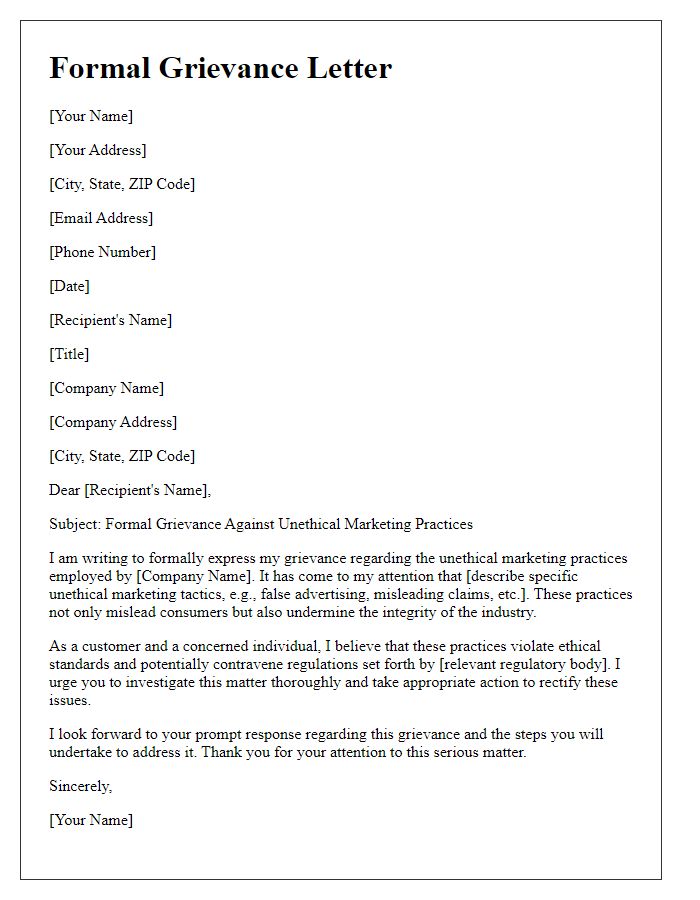
Letter template of official communication on inappropriate sales methods
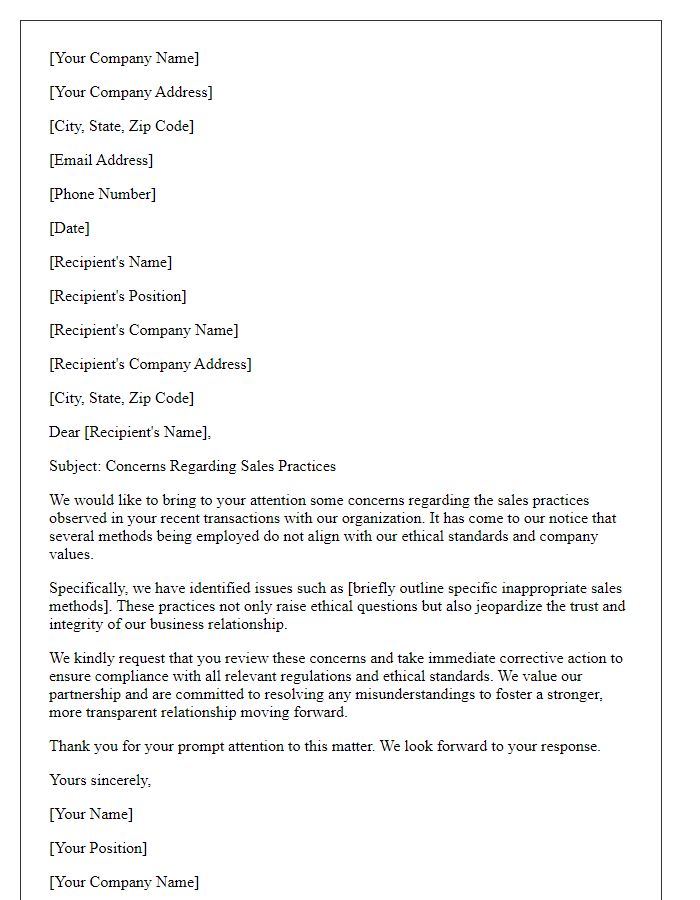

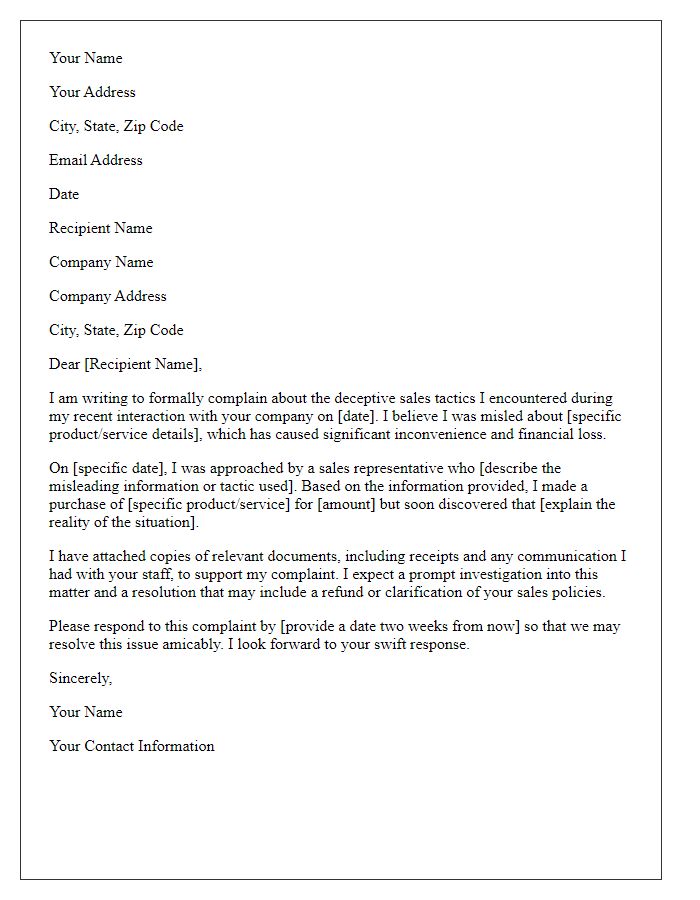
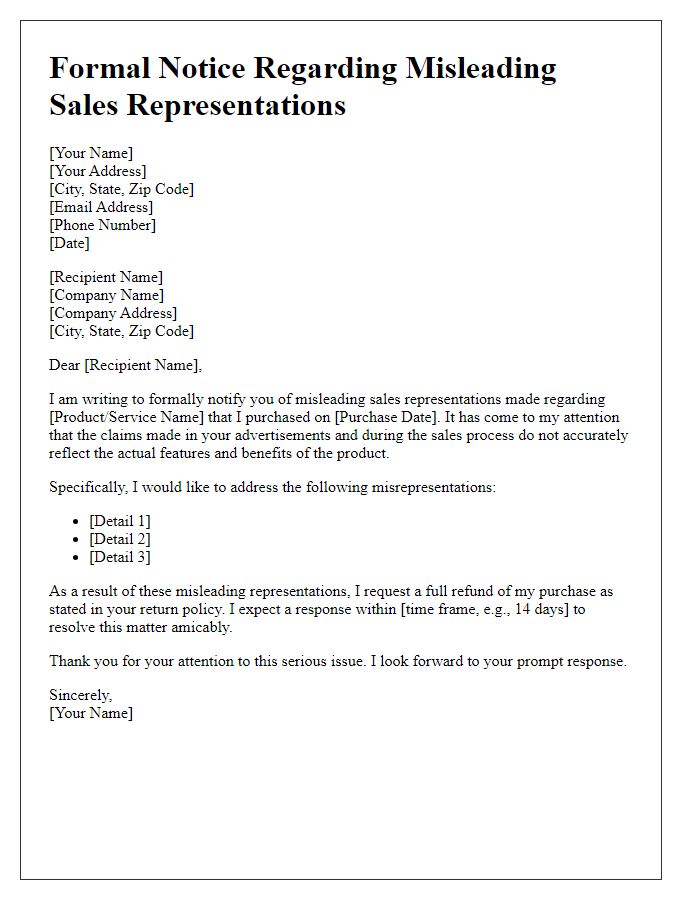
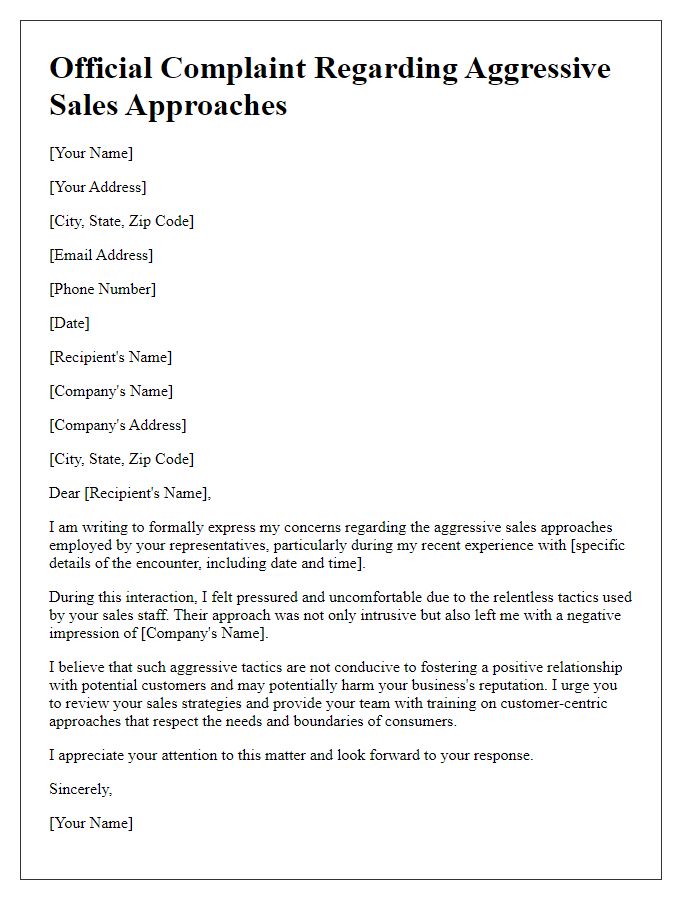
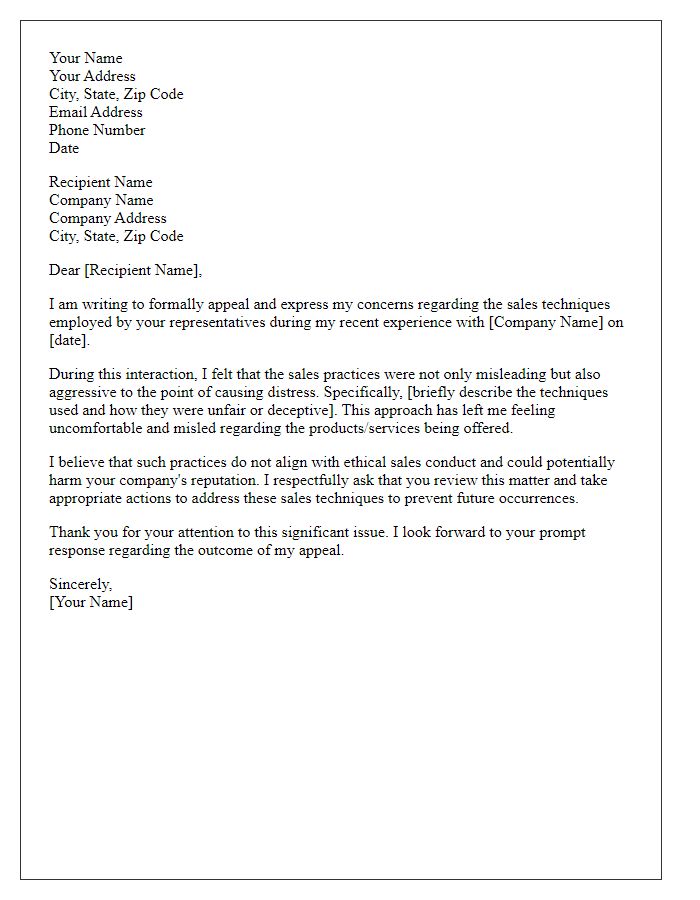
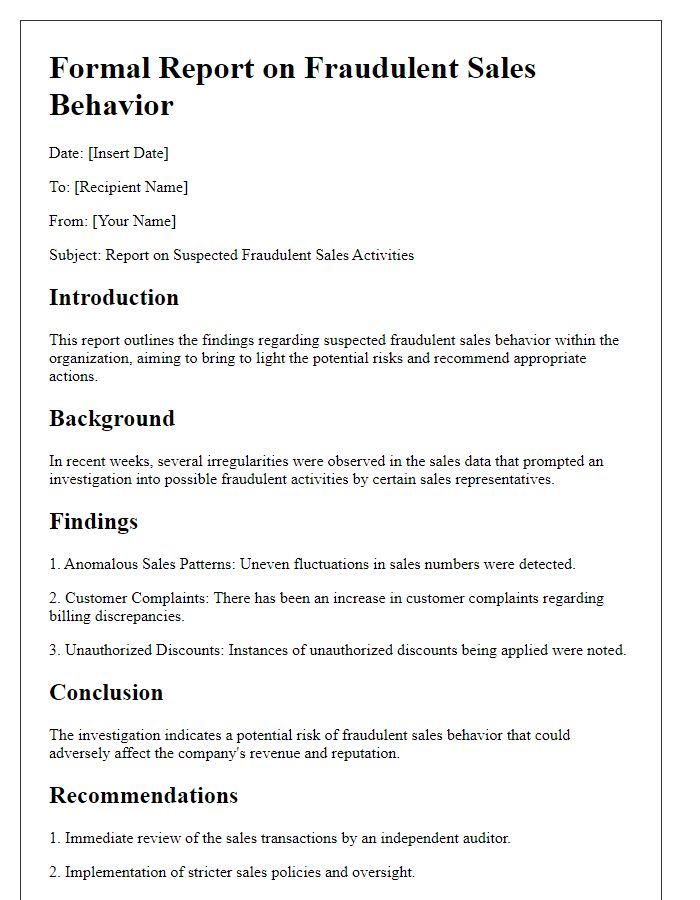
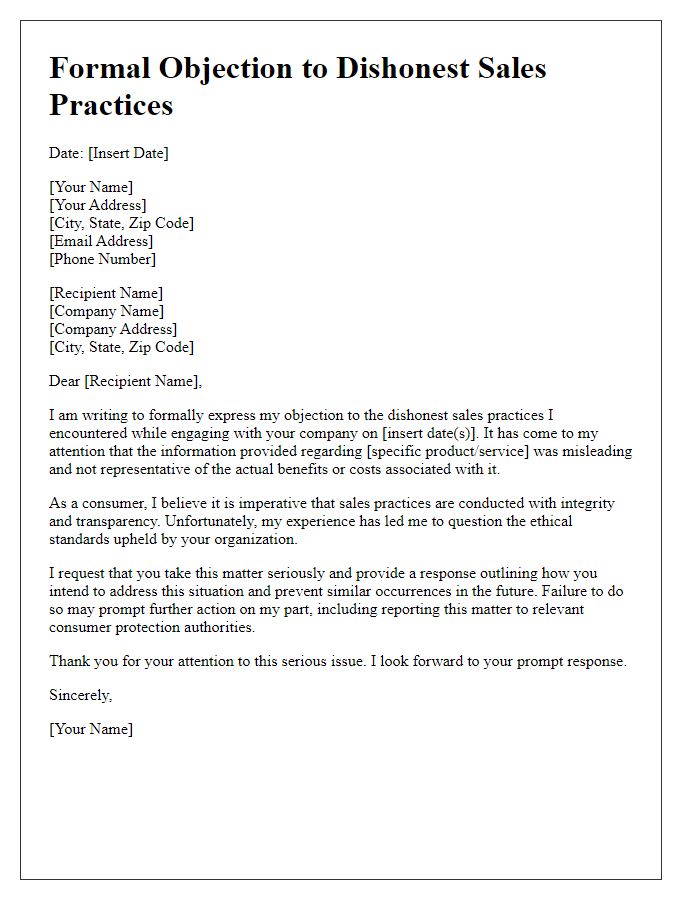
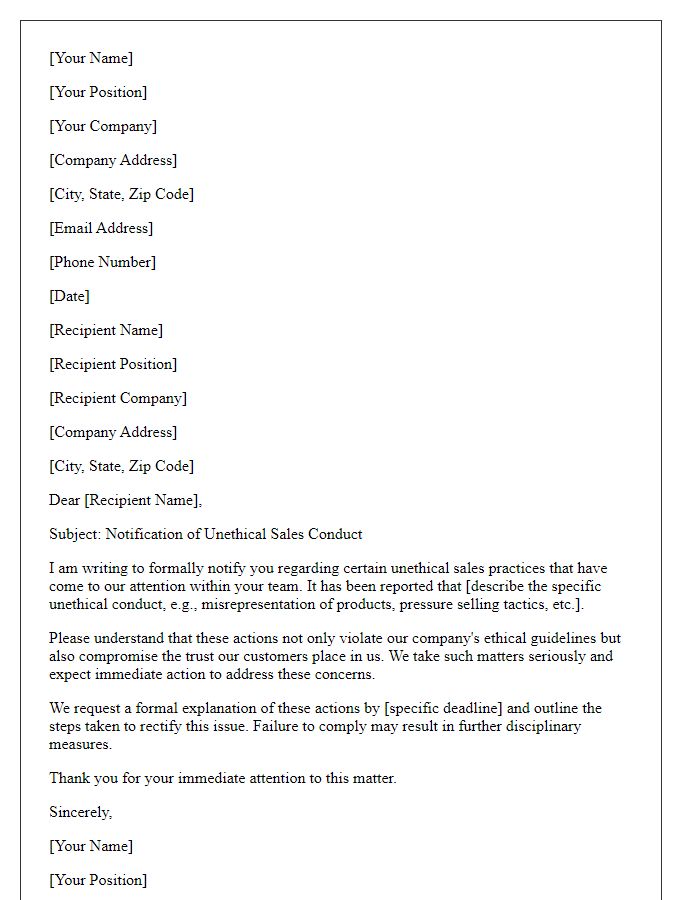
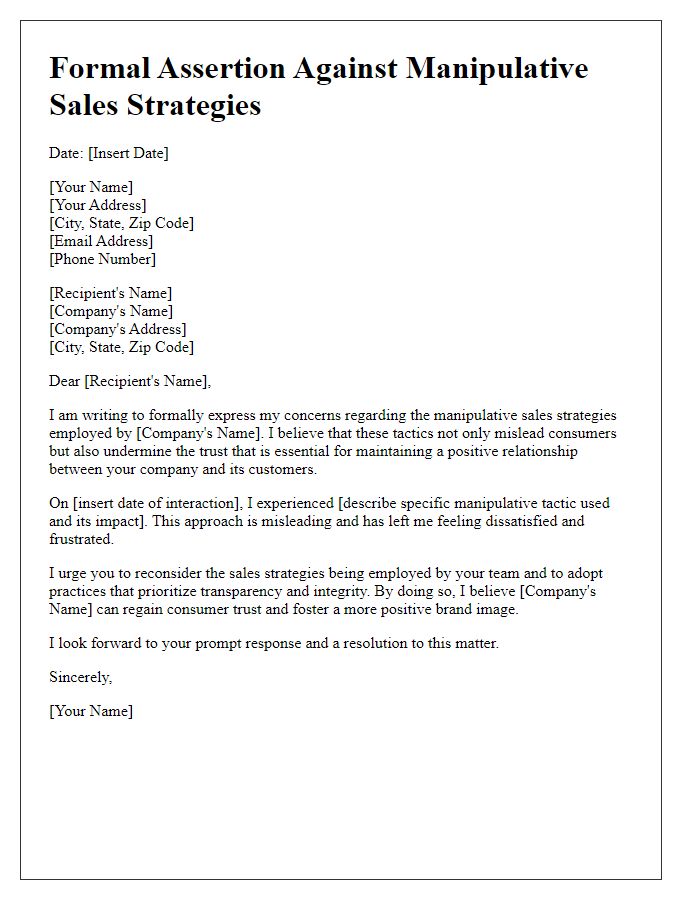


Comments